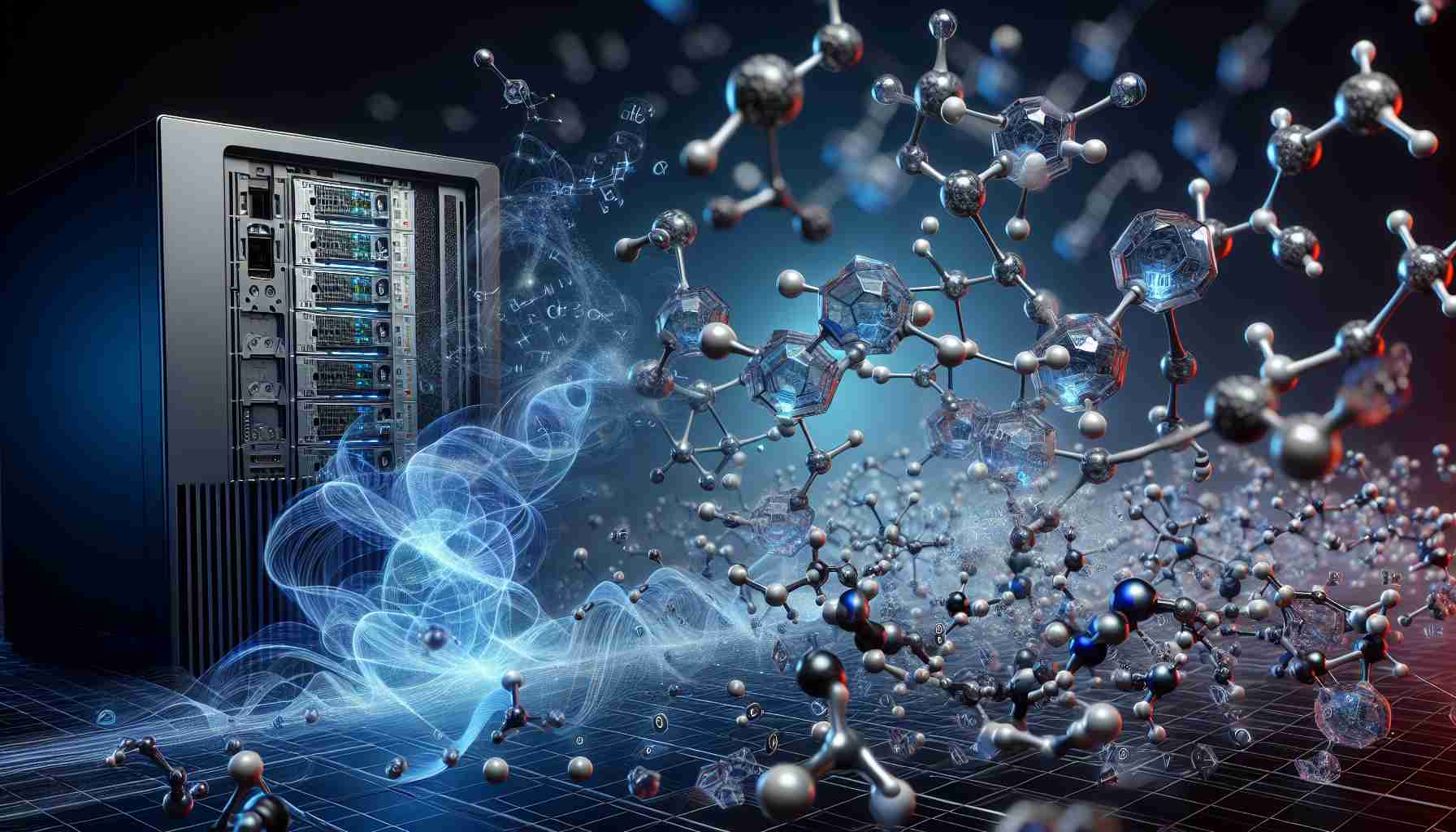Recent research conducted by a multi-institutional team presents a new approach to solving chemical simulation problems using quantum computers. This work has the potential to enhance computational chemistry, which could accelerate drug development and material innovations.
The focus of the study was on optimizing chemical simulations to avoid computational costs as the size of the systems increases. The team of scientists from the University of Toronto states that their research deviates from traditional chemical simulations, which were limited by the use of classical computers.
The new method is based on dynamic simulations of chemical reactions, utilizing the capabilities of quantum computers. Quantum simulations are described in the study as the time evolution according to Schrödinger’s equation under the influence of the Hamiltonian. Such simulations can be performed on quantum computers, belonging to the computational complexity class BQP (bounded error quantum computational time). This means that these simulations can be solved in a finite amount of time with a limited chance of errors.
The research paper describes that the framework uses a set of initial configurable atomic states, which are then transformed into input states for reactions through a dynamic scattering process. This process, enhanced by artificial potentials, leads to the creation of the input state for subsequent dynamic simulations. This method differs from previous approaches by eliminating challenges associated with preparing the ground state and the issue of orthogonal catastrophe – decreased chance of successfully recovering the ground state.
The new methodology promises effective simulation of various chemistry-related problems. By focusing on the dynamics of simulations, researchers offer an alternative to computationally intensive search for the ground state, which traditionally has been considered a bottleneck in chemical simulations.
Although the research provides a solid theoretical foundation, the research team acknowledges the need for further studies to assess the practical aspects of their approach. Future research may involve integrating classical simulation tools, such as the Nosé-Hoover thermostat, and developing quantum heuristics for ground states. It is also important to note that ArXiv is not subject to formal peer review, which is a significant stage in the scientific process.
Ignoring potential issues that may arise in future research, the potential impact of this technology could be significant. By enabling more efficient simulations of chemical systems on quantum computers, these studies could accelerate advancements in various fields, including drug development and materials science. This scientific work emphasizes the evolving role of quantum computers in scientific research and provides a way to advance computational chemistry.
The research was conducted by Philipp Schleich and includes two well-known names in the field of quantum computers – Joe Fitzsimons from Horizon Quantum Computing and Alán Aspuru-Guzik, a professor of chemistry, computer science, chemical engineering, and materials science at the University of Toronto. The team also includes Lasse Bjørn Kristensen, Davide Avagliano, Mohsen Bagherimehrab, Abdulrahman Aldossary, and Christoph Gorgulla.
Definitions of Key Terms and Jargon:
– Chemical simulations: An attempt to model and analyze chemical processes using mathematical and computational tools.
– Quantum computer: A computer that utilizes quantum effects and quantum-level processing for computations.
– Time evolution: A dynamic process in which the states of a system change over time according to specific rules.
– Schrödinger’s equation: An equation in quantum physics that describes the time evolution of the quantum state of a system.
– Hamiltonian: A mathematical operator used to describe the time evolution in quantum mechanics.
– Quantum computational time error: Measures to what extent the outcome of quantum computations may deviate from the expected results.
– Ground state: The lowest energy state of a system.
Related Previews Regarding the Main Domain:
– University of Toronto
The source of the article is from the blog jomfruland.net
